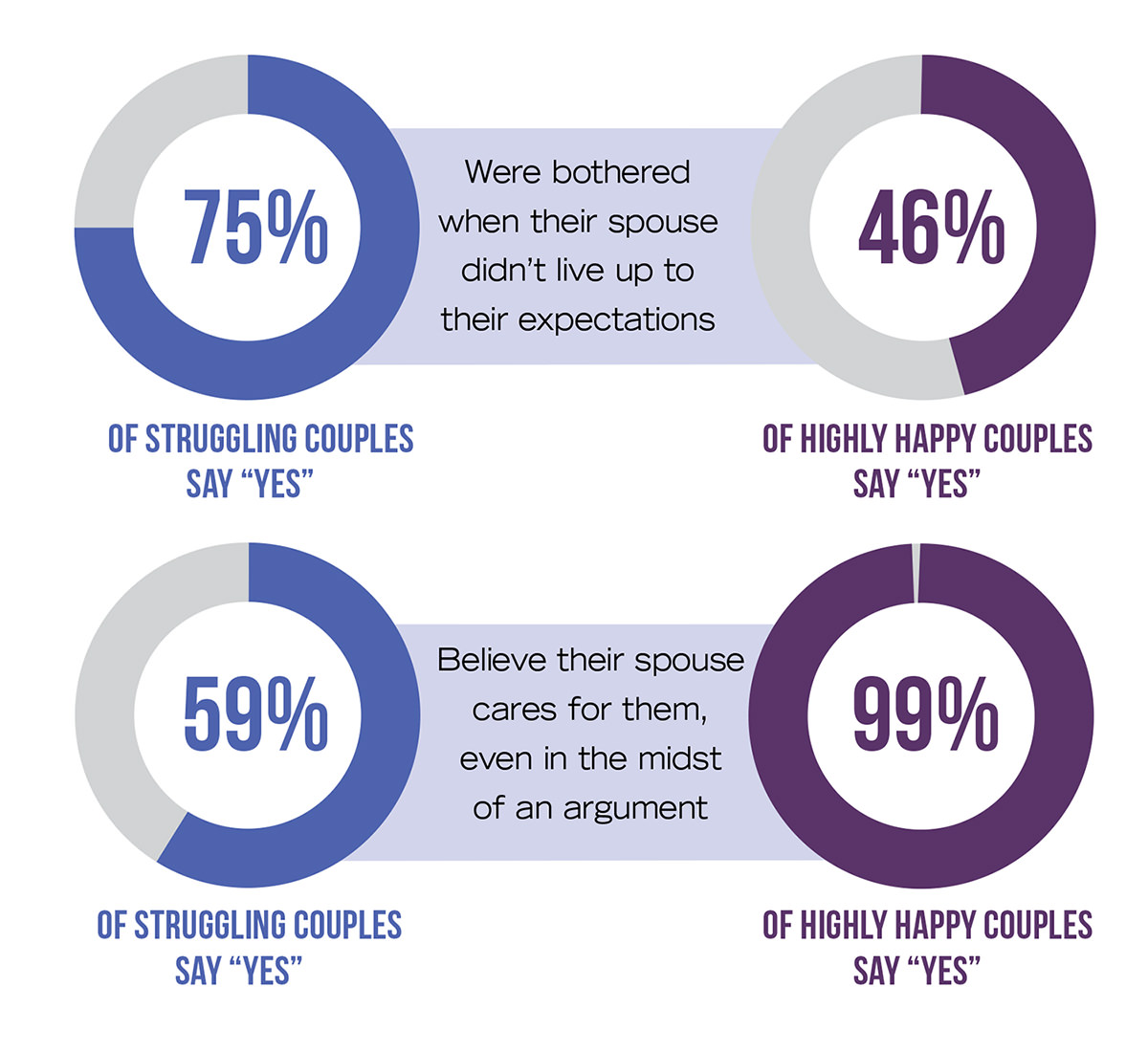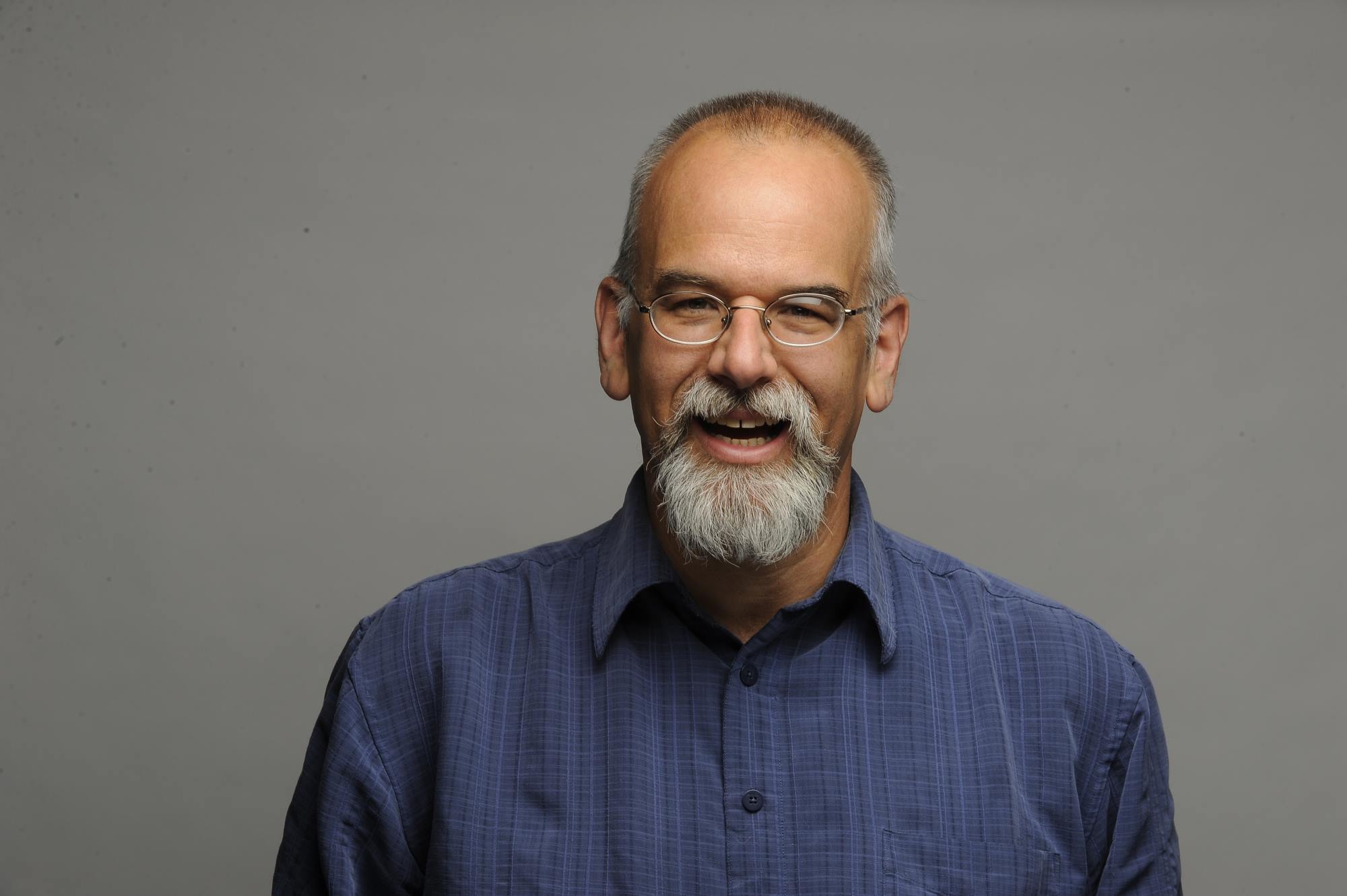
By Bob Smietana
Go to bed angry. Always keep score. And remember, honesty is not always the best policy.
Those are some of the unexpected tips for wedded bliss from best-selling author and social researcher Shaunti Feldhahn in her recent book, The Surprising Secrets of Highly Happy Marriages.
Feldhahn interviewed and surveyed more than 1,000 couples for the book. She then sorted those couples into categories, from struggling to highly happy. In doing so, she hoped to find the habits and attitudes that separate so-so marriages from spectacular ones.
She highlights a dozen of those habits in her book. Among her findings: small things like saying “thank you” and showing affection in public really matter. “By far the biggest surprise to me was how big these little things were,” says Feldhahn.
She points to a conversation with a friend whose marriage went through a crisis and later a divorce. Her friend’s husband worked long hours to provide for the family, but paid her little attention. Their marriage eventually unraveled.
“He worked so hard for a year to take us on that amazing vacation to Hawaii,” the friend told Feldhahn. “But all I really wanted was for him to put his arm around me in church.”
Other day-to-day habits, like leaving a voice message or sending an email that says “I love you,” or praising your spouse in public were commonplace for the happiest couples in Feldhahn’s study. She also discovered the happiest couples tend to ignore conventional advice, such as the idea that you should never go to bed angry.

Most of the couples Feldhahn interviewed say they agree with that advice. Then she asked them, “Do you go to bed mad?”
“They told me, ‘well it’s a really important principle’ and then they would start backtracking,” she says.
It turned out that many of the happiest couples Feldhan interviewed had learned how to put their disagreements on hold at times. Instead of duking things out at night, when both spouses were tired and irritable, these couples tend to wait till the morning, when cooler heads will prevail, she says.
“The difference between the happy couples and the less than happy couples isn’t what happened the night before, it’s what happened in the morning,” she says. “If the hurt feelings were still there, the happy couples dealt with it. The less than happy couples ignored the problem and hoped it would go away.”
Along with surveys, Feldhahn relied on a series of follow-up interviews with happily-married couples in writing her book.
Many have found creative and sometimes humorous ways to reconcile after a conflict. Some crack jokes. Others share a cup of coffee or a hug. One couple touches pinkies after a fight.
Almost all of them had some kind of secret signal to say that everything was going to be OK, says Feldhahn. Of the happy couples she surveyed, 7 out of 10 say they have a “we’re OK” signal after conflicts. Only 1 in 5 (22 percent) of the struggling couples had a similar signal.
Feldhahn believes those small signs or signals can solidify a married couple’s relationship. The couples intentionally reaffirm their commitment to one another at the end of each conflict.
Feldhahn says even the happiest couples are insecure at times. That’s a normal part of being human. And those insecurities worsen during conflict, says Feldhahn. A bit of humor, a funny habit, or a hug can help set things straight.
So can a habit of kindness. Most of the happily married couples Feldhahn interviewed have learned to be careful in how they speak to each other. Brutal honesty, she discovered, can be counterproductive.
“Highly happy couples treat each other with intentional kindness,” she writes. “They joke and challenge, but they try never to do it in ways their mate would perceive as disrespectful or hurtful.”
Honesty is important in marriage, says Feldhahn. But the happiest couples have realized that sarcasm or harsh comments may not be the best way to share feedback. If your spouse gets on your nerves, tell them, she says. But don’t be harsh or use brutal honesty as a way to get back at your spouse.
Generosity also matters. Feldhahn found that most of the happiest couples in her surveys and interviews are surprisingly competitive—at least when it comes to taking care of their spouse and family. If one of them has a hard week or has taken on extra responsibilities—like caring for sick kids—the other will essentially try to pay them back.
“We always say, ‘don’t keep score in marriage,’” she says. “But it turns out happy couples absolutely do keep score. They just keep score differently. They keep score of what the other person is giving, and then try to outdo each other.”
Over the last decade, Feldhahn has shown a knack for turning her insightful research and pithy writing into best-selling books about relationships with titles like For Women Only and For Men Only.
Both of those skills are on display in The Surprising Secrets of Highly Happy Marriages, which features chapters on how happy couples “Have Factual Fantasies,” “Don’t Tell it Like it Is,” and “Get In Over Their Heads.”
The “Factual Fantasy Chapter” revolves around a survey question about unmet expectations. Most (75 percent) of the struggling couples in Feldhahn’s survey say they were bothered when their spouse didn’t live up to their expectations. Less than half (46 percent) of the highly happy couples say this was an issue. About a quarter of those couples (23 percent) say they didn’t have unmet expectations.
A similar chapter, called “Believe the Best,” reports that almost all the happiest couples (99 percent) say they believe their spouse cares for them, even in the midst of an argument. By contrast, only 59 percent of the struggling couples felt their spouse cared for them, even if they were arguing.
Feldhahn says this question about whether your spouse really cares for you—even in the midst of conflict—is crucial.
“If you are going to have a happy marriage, you cannot believe the worst of your spouse’s intentions,” she says. “You have to stop yourself from doing that. Happy couples believe their spouse really cares for them. Unhappy couples don’t let themselves believe the truth.”
Among the most important findings, says Feldhahn, is the idea that the happiest couples are “all in.” They really do want to stay together “till death do us part” and don’t have a Plan B.
She says many newly married people think they need to keep a separate bank account or set aside a nest egg, in case their marriage fails. That’s counter-productive, she says.
“The act of trying to protect yourself—in case it all goes wrong—is more likely to make it all go wrong,” she says.
During her research, Feldhahn says she talked to a number of couples who’d been on the edge of divorce at one point in the past, but who have become happy.
Becoming happy involved a lot of work for those couples, she says. Things started to get better when both spouses became fully committed to the long-term success of their marriage.
“They decided there is no Plan B—we are going to work this out, because we are going to be together for the rest of our lives,” she says. “That level of commitment changes everything.”

Bob Smietana
Bob is the former senior writer for Lifeway Research. In September 2018, he joined Religion News Service, where he currently serves as a national writer.







